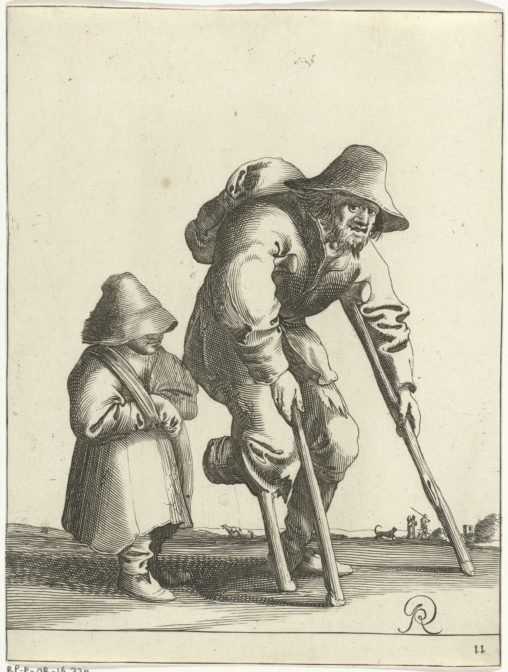In the 1600s, poor relief was a local affair. There was no national social security system.
Larger cities had poor masters who administered a fund to support the poor residents of the city. In the countryside and smaller cities, the deacons of the protestant church had the responsibility to aid people in need. Even people who did not belong to the church were supported. People who were unable to work because of illness, age, or disability received charity.
The income of the poor relief organizations mainly consisted of the proceeds of the rent of farms, church benches, death palls, and bequests. The expenses of the poor masters included purchase of food and clothes for the poor and monetary support.
People who received charity were thoroughly monitored. Improper behavior could have consequences for the support they received. Besides financial records, the records created by the poor relief organizations may also contain descriptions of the character of those who received aid. The records sometimes mention their place of origin, if there was a possibility to recoup the expenses.
These records can often be found in the archives of the churches. Many churches have turned over their records to the local or regional archives. The records of the city poor administrations can also be found at local or regional archives.

Beggar and child, 1630s. Credits: Pieter Jansz. Quast, collection Rijksmuseum (public domain)


A few years ago, the ‘Armenboek van Gorssel’ (1669-1699) was retrieved from a fault in the church of Gorssel, the Netherlands. This easy to read book is part of the archive of this church held by the Erfgoedcentrum Zutphen. In the book you’ll find both lists of income and donations, based on requests for help, sometimes even for disasters abroad. Check out the scans of the book at https://erfgoedcentrumzutphen.nl/onderzoeken/archieven/scans/NL-ZuRAZ-5049/2.2.1.
If someone is capable to make a transcript, please let me know.